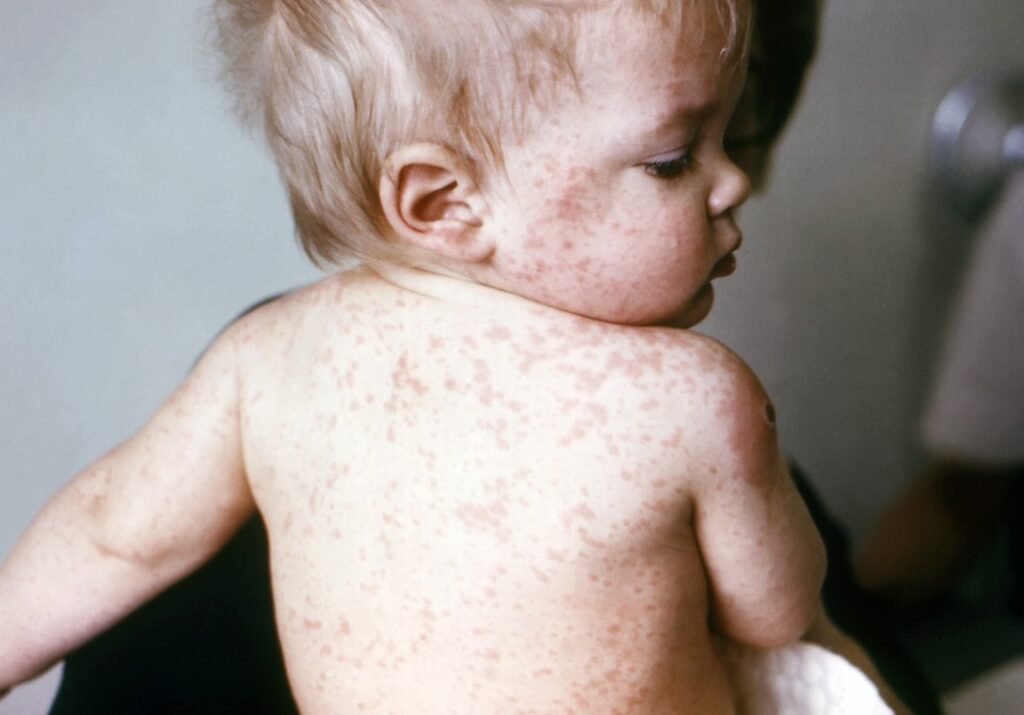The UK is facing a surge in measles cases, with more than 1,600 suspected infections reported in 2023, compared to 735 in 2022. Health officials have declared a national health incident and urged parents to check if their children have had the measles, mumps and rubella (MMR) jab.
Measles is a highly contagious virus that can cause serious complications, such as pneumonia, brain inflammation, and even death. It is spread by coughing and sneezing, and can infect anyone who is not immune. Measles can be prevented by the MMR vaccine, which is very effective and safe.
The symptoms of measles include fever, cough, runny nose, red eyes, and a rash that usually starts on the face and spreads to the rest of the body. Anyone who suspects they have measles should contact their GP or call NHS 111, and avoid contact with others.
Why are measles cases rising in the UK?
One of the main reasons for the increase in measles cases is the low uptake of the MMR vaccine, especially among children. According to the UK Health Security Agency (UKHSA), only 85% of five-year-olds in England have received the recommended two doses of the MMR vaccine, which is below the 95% target needed to achieve herd immunity and stop the spread of the virus.

Some of the factors that have contributed to the decline in vaccination rates include:
- The disruption caused by the Covid-19 pandemic, which may have deterred some parents from taking their children to vaccination appointments or made them unaware that the NHS was still offering the MMR jab.
- The misinformation and conspiracy theories spread by anti-vaccine groups, which may have eroded the trust and confidence in the MMR vaccine among some parents. These groups often cite the debunked link between the MMR vaccine and autism, which has been refuted by numerous scientific studies.
- The lack of awareness and complacency among some parents, who may not realise how serious measles can be or think that it is no longer a threat in the UK.
What are the authorities doing to tackle the measles outbreak?
The UKHSA has declared a national health incident in response to the measles outbreak, which means that it will coordinate and support the local health authorities in their efforts to contain and prevent further cases. Some of the measures that the UKHSA and its partners are taking include:
- Enhancing the surveillance and reporting of measles cases, and conducting contact tracing and outbreak investigations.
- Providing advice and guidance to the public and health professionals on the symptoms, diagnosis, treatment, and prevention of measles.
- Increasing the availability and accessibility of the MMR vaccine, and offering catch-up vaccinations to those who have missed or delayed their doses.
- Launching campaigns and initiatives to raise awareness and promote the benefits of the MMR vaccine, and to counter the myths and misinformation spread by anti-vaccine groups.
How can parents protect their children from measles?
The best way to protect children from measles is to make sure they have had the two doses of the MMR vaccine, which are usually given at 12 months and 3 years and 4 months of age. However, it is never too late to get vaccinated, and the MMR vaccine is free on the NHS for anyone who needs it, regardless of their age.
Parents can check their children’s vaccination records or contact their GP to find out if they have had the MMR vaccine. If they have not, they should book an appointment as soon as possible. Parents should also encourage their family and friends to get vaccinated, and to avoid contact with anyone who has measles.
Health officials have warned that measles cases could rise further in the coming months, especially as travel and social activities resume after the Covid-19 restrictions. They have urged parents to act now and vaccinate their children, to protect them and others from this potentially deadly disease.
